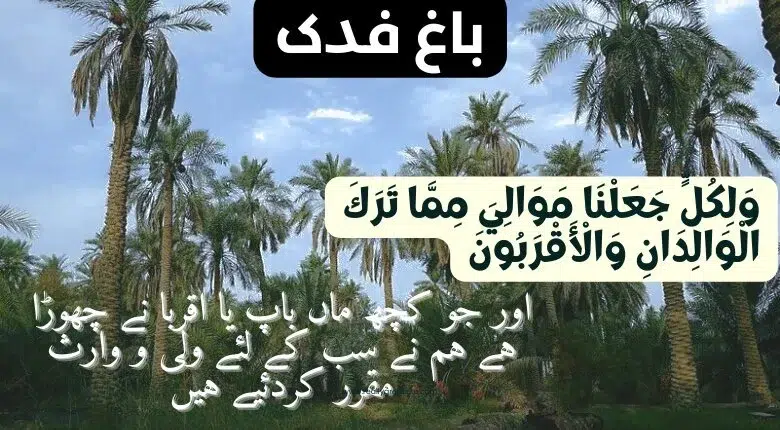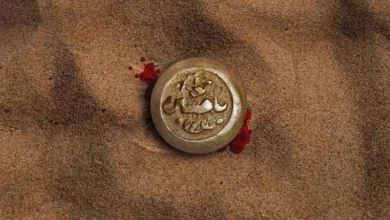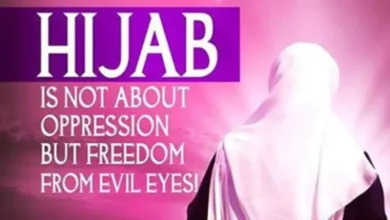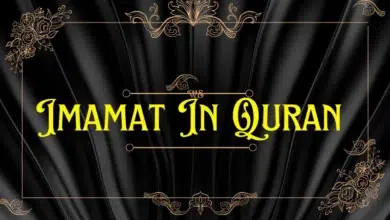
As we’ve already said, Bagh Fidak was given to Hazrat Fatimah Zahra (as) during the Prophet’s life, after the verse was revealed. This is something that not only Shia commentators but also a group of Sunni scholars has said, based on the words of a famous companion of the Prophet (p.b.u.h.) whose documents we’ve already talked about.
Bagh Fidak After the departure of the Holy Prophet (pbuh),
After the departure of the Holy Prophet (pbuh), the government of the time took control of the Bagh Fidak and deprived the Fatimah’s children. The well-known Sunni scholar “Ibn Hajar” as well as “Samhoody” and “Ibn Abil Hadid” wrote about this in their respective books.
The Lady of Islam Hazrat Fatima (as) used two arguments to get what was rightfully her property: first, she said it was the prophet’s gift to her, and second, she said it was her property when the gift argument didn’t work.
First, the Lady of Islam asked the leader of the faithful, Imam Ali (as), and Hazrat Umm Emen to go with Her as witnesses to the first caliph. But the caliph didn’t accept these witnesses because he said that two men had to be witnesses to prove a case in court.
Then, he said that the Holy Prophet (p.b.u.h.) was said to have said, “We prophets leave no property, and everything that is left after us will be for alms.” He also didn’t agree with the idea that it was an estate.
This is true even though a quick look shows that the ruling usurping government has made ten big mistakes with this move. Below is a list of these, even though their descriptions need a lot more work.
Proofs of Bagh Fidak
- Fatimah (sa) meant that the laud of Bagh Fidak
- Bagh Fidak was in her hands, and all Islamic laws and the laws of educated people around the world say that a person never needs witnesses.
This is true unless there are good reasons why the property or the person’s ownership of it is not valid.
For example, if someone lives in a house and says it’s theirs, it can’t be taken away from them unless there’s a reason to say they don’t own it. He doesn’t need to show proof of ownership from other people because the fact that he or his agents are in possession is the best proof of ownership.
- In this case, the words of the Lady of Islam (sa.) were enough on their own. This is because, as the famous verse says, she was: (Quran, Chapter 33, Verse 33) “Allah only wants to keep you, people of the house, from being dirty! And to clean you up (thoroughly).
And the well-known custom “Kisa,” which is told in many trustworthy books and books of ethics, talks about the innocent ones. God kept the Prophet (p.b.u.h.), Imam Ali (as), Hazrat Fatimah (sa), Imam Hassan (as), and Imam Hussain (as) from anything dirty or bad, and He made them sinless. How could the statement or claim of such a person be questioned and put into doubt?!
- Imam Ali’s (as) testimony was also enough because He was pure according to Ayat e Tatheer. In addition to the line about cleansing and other verses and stories that say this, there is a well-known tradition that says:
(Ibn Abi al-Hadid, volume 16, page 219)
“Ali is fair, and justice is with Ali. Justice is with Ali, no matter where He is.”
Which is enough to make you wonder: How is it that justice revolves around Ali (as), but his evidence is not believed?
Who has the audacity to dispute the Prophet’s (p.b.u.h.) words in light of the fact that both Shia and Sunni have recorded them?
- Umm Emen’s evidence was enough on its own, just as Ibn Abi al-Hadid said:
Umm Emen told them,
“Don’t swear that the prophet said, “I am one of the people who live in heaven.” If you agree with this, then how can you dispute my testimony?” (Ibn Abi al-Hadid )
- Even if you don’t count what came before, the ruling knowledge, which can be gathered from different proofs (sense proofs or proofs that are similar to sense proofs), is enough to make a decision. On the one hand, ownership and “in hand,” and, on the other, the statements of these witnesses, each of which should be enough proof, don’t they form knowledge and certainty?
- The hadees that prophets don’t leave any property behind are told in a different way and has a different meaning than what the usurpers of Bagh Fidak said or thought it meant. Other sources say the following about this tradition:
(book 1 page 34)The prophets didn’t leave behind dirhams and dinars as a way to remember them. Instead, they left behind knowledge and learning. Whoever gets a bigger share of their knowledge and learning has gotten a bigger gift from them. This is a way to remember the prophet’s spiritual and intellectual inheritance. It has nothing to do with their property. In another story we have heard, this is exactly what is meant. This means, “Scholars are the Prophet’s children.”
Especially, the sentence was definitely not at the end of this custom. Is it possible for the prophet to have passed on a practice that goes against clear words in the Quran? This is because there are several verses in the Holy Quran that say the prophets left an inheritance, and these verses make it clear that this includes both a spiritual inheritance and a material heritage.
So, the Lady of Islam Hazrat Fatima (sa) used these lines in her famous speech, which she gave in the Prophet’s mosque in front of the “Muhajereen” and “Ansar,” and no one could argue with Her. All of this shows that this belief is not true.
- If this story was true, why hadn’t any of the Prophet’s wives heard it? They went to the caliph to ask for their share of the Prophet’s estate, so why didn’t they know about it? (Ibn Abi al-hadid; volume 16, pg. 228 This story has also been told.
- If this story was true, why did the first caliph order in a letter that Bagh Fidak be given back to Fatimah (sa)? The second caliph took the letter and tore it up. (book 3 pg. 391)
- . Also, if this story is true and Bagh Fidak should have been given to the poor as a charity, why did the second caliph, in his own time, send for Ali (as.) and Abbas and tell them he was ready to give them Bagh Fidak? This is a well-known event in the history of Islam. (part on Ibn Hajar’s good qualities; page 9)
- Both Shia and Sunni books that can be trusted say that after the Bagh Fidak event, the Lady of Islam Hazrat Fatima (sa) got angry with these two and told them, “I will never speak even one word to you.”
This went on until she was very sad and had to close her eyes to this world.
Even though this prophetic story is well-known in Islamic sources:
“Whoever likes my daughter, Fatimah, likes me. Whoever makes her happy, makes me happy, and whoever makes her angry, makes me angry.”
So, if this is true, can the right that Fatimah (sa) asked for Bagh Fidak be denied? and can a reason be found in a story that shows no signs of being true? And this is different from what the Quran says, which says that the prophets’ children get an inheritance from them.
In any case, there is no good reason for taking Bagh Fidak ‘s place, and there is no excuse for this act.
On one side, there is the fact that Fatimah Zahra (pbuh) owns the land.
On the other side, there are trustworthy witnesses, and on the third side, the “Book of God” (the Holy Quran) says so. And, on the fourth side, the different Islamic stories that all back up the lady of Islam’s case for Her unquestionable right in Bagh Fidak.
Also, the general lines in the Quran about inheritance, which say that everyone has the right to receive from their parents (and can’t be argued against unless there are good reasons to do so), are other proof.




